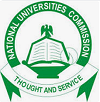NATIONAL UNIVERSITIES COMMISSION

REPORT ON ACCREDITATION OF ACADEMIC PROGRAMMES
IN NIGERIAN UNIVERSITIES
A. SUMMARY OF PANEL’S REPORT
DATE OF VISITATION:
27th February – 1st March, 2025
INSTITUTION:
Ebonyi State University, Abakaliki
DISCIPLINE:
Engineering
PROGRAMME:
Electrical and Electronics Engineering
PROGRAMME SCORE:
63.41%
ACCREDITATION STATUS:
INTERIM
DEFICIENCIES |
REMEDIES |
|
1) The Curriculum contains only one innovative course 2) Academic regulations exist in students’ handbook but not well publicized. 3) The programme does not make adequate provision for practical work hence inadequate for the skill level required. Experiments are not conducted in the areas of Electrical Machines, Control/Instrumentation and Power Systems. 4) Students in the programme did not demonstrate very good level of hard and soft skills expected of or prescribed for their levels of study in the programme. 5) External Examiner System does not exist. 6) The internal quality assurance mechanism does not exist. 7) 57.1% of teaching staff are not core to the programme 8) The staff mix by rank of 14:48:38 does not meet the NUC approved guidelines in all categories 9) 33.3% of the academic staff do not have Ph.D. degree 10) 87.5 % of non-teaching staff have not benefited from staff development programme 11) Available space in Power and Communication Laboratory is inadequate. There are no Basic Electricity, Control/Instrumentation and Machine Laboratories, There are no proper Laboratory manual. 12) Academic staff offices are inadequate in number and they are not furnished with bookshelves and filing cabinets 13) Books and Journals in the physical library are inadequate in number and currency 14) The slow internet connectivity impedes access to e-books and journals by students and staff of the programme 15) There is no multidisciplinary approach to research
|
|
1) The University should ensure that the curriculum is enriched by the addition of at least four innovative courses without exceeding the maximum credit load. 2) Academic regulations should be well publicized. 3) The University should ensure that the programme is structured to include adequate practical work in every areas of Electrical/Electronic Engineering. 4) The University should ensure that Students in the programme acquire relevant hard and soft skills expected of or prescribed for their levels of study in the programme. 5) The University should ensure that a qualifies external examiner is engaged. 6) The University should establish an internal quality assurance unit. 7) The University should ensure that the ratio/proportion of teaching staff core to the subject area provides for 75% or more of the teaching staff need. 8) The University should ensure a staff mix by rank of 20:35:45 in line with the NUC approved guidelines 9) All academic staff should be encouraged to obtain Ph.D. degree 10) The University should ensure that all non-academic staff benefit from Staff Development Programme 11) standard (spacious) and well equipped laboratories should be provided for the programme. Experiments should be properly conducted. Training manuals should be developed, reported, graded and documented. 12) Adequate number of well-furnished offices should be provided for the academic staff of the programme 13) More current books and journals should be procured for the programme 14) The University should ensure that internet connectivity is improved upon 15) The University should ensure that there is a multidisciplinary approach to research in the programme
|
The total score for the programme is 63.41%. It scored 24 (68.57%) in Academic Matters, 20 (57.14%) in Staffing, 16 (59.26%) in Physical Facilities, 13 (72.22%) in Library. The programme scored 2 (66.67%) in Funding, 1 (33.33%) in Research and Collaborations and 2 (100.00%) in Employers’ Rating. Based on the fact that the programme scored less than 70% in any of the four core components (Academic Matters, Staffing, Physical Facilities and Library), the Panel recommended INTERIM accreditation status for the Programme.
B. APPROVAL BY THE COMMISSION
Based on further analysis of the report, the Commission upholds the recommendation of INTERIM accreditation status for the Programme
